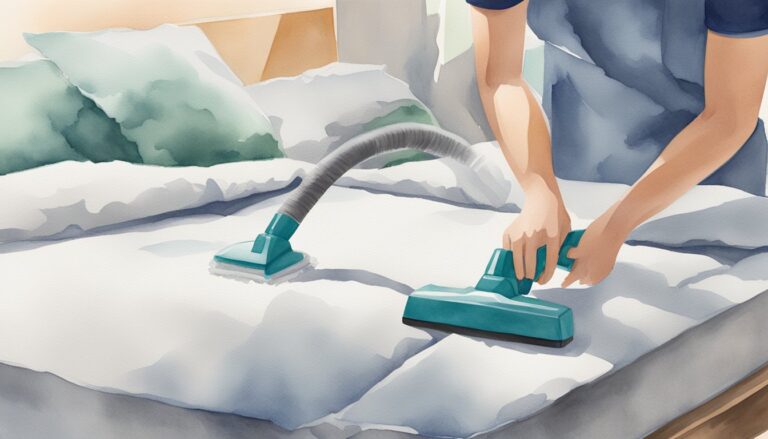Call us: (631) 270 9692
Maintaining clean fuel injectors is essential for optimal engine performance and fuel efficiency. Cleaning your fuel injectors regularly can prevent clogging and ensure that your engine runs smoothly, saving you from costly repairs down the line. By cleaning them yourself, you can keep your vehicle in peak condition without the need for expensive professional services.
You can clean your fuel injectors with or without removal from the engine. Using an in-tank fuel injector cleaner is one of the easiest ways to keep your injectors clean. However, for more thorough cleaning, you might consider using a dedicated cleaning kit. Both methods help in maintaining the efficiency of your injectors and the overall performance of your car.
Knowing the signs of clogged fuel injectors, such as rough idling or poor fuel efficiency, can help you address the problem early. By incorporating regular maintenance into your routine, you can extend the life of your engine and enhance your driving experience. Learn how to clean your fuel injectors effectively by following these straightforward steps.
Understanding Fuel Injectors and Their Function
Fuel injectors are crucial for your car’s performance, ensuring fuel is delivered accurately and efficiently. Knowing their components, how they work, and signs of issues can help you maintain a healthy engine.
Components of a Fuel Injector
Fuel injectors have several key parts. The nozzle sprays fuel into the engine. The injector body holds everything together and connects to the fuel rail. Inside, there are tiny valves that open and close to control fuel flow. The fuel filter keeps dirt out. Seals and o-rings ensure there are no leaks.
A malfunction in any of these parts can cause fuel delivery problems. It’s important to keep them clean to maintain optimum performance.
How Fuel Injectors Work
Fuel injectors spray fuel into the engine’s combustion chamber. The injected fuel then mixes with air, allowing it to burn efficiently. They open and close at precise times, controlled by the car’s engine control unit (ECU).
When you press the gas pedal, the ECU adjusts the timing and amount of fuel sprayed. This ensures your car accelerates smoothly. If injectors are clogged, they can’t spray fuel properly, leading to poor engine performance and increased emissions.
Signs of Clogged Fuel Injectors
Clogged fuel injectors show several symptoms. You might notice a rough idle or misfiring engine. A drop in fuel efficiency is common. Your car may struggle to start or stall suddenly. The check engine light might turn on, signaling a problem.
You can also use a fuel pressure gauge to check for uneven pressure. Addressing these issues early can prevent more serious engine damage. Cleaning the fuel injectors can resolve these problems and restore your vehicle’s performance.
By understanding these crucial components and their signs, you can better maintain your vehicle and detect problems early.
Step-by-Step Fuel Injector Cleaning Process
Cleaning your fuel injectors can improve engine performance and fuel efficiency. It’s important to follow each step carefully to ensure your vehicle runs smoothly.
Safety and Preparation
Before you start, gather the necessary tools: safety glasses, gloves, fuel injector cleaning kit, and hand tools. Make sure to wear safety glasses and gloves to protect yourself from chemicals and debris.
Disconnect the fuel pump and relieve the fuel system pressure to prevent spills. Having a fire extinguisher nearby is also a good idea, as you will be handling flammable substances. Consult your vehicle’s manual for specific instructions about your fuel system setup.
Manual Cleaning Method
For manual cleaning, first locate the fuel injectors, typically near the intake manifold. Carefully disconnect the fuel injectors from the fuel rail. For this step, following your vehicle’s manual or a detailed guide can be very helpful.
Use the cleaning kit to attach an adapter to each injector nozzle. Apply the cleaning solution to the injectors, ensuring it circulates through each one. Scrub the injector tips with a brush if needed to remove deposits. Repeat the cleaning process until the spray pattern is even.
Using a Fuel Injector Cleaner Additive
A simpler method involves adding a cleaner additive to your fuel tank. Purchase a fuel injector cleaner designed for your type of engine. Measure the appropriate amount of cleaner following the product instructions and pour it into the fuel tank.
Start the engine and let it run for the specified duration or distance, allowing the cleaner to travel through the fuel system. This method is less hands-on and helps in maintaining the injectors by preventing buildup over time.
Reinstallation and Testing
Once the injectors are clean, reattach them to the fuel rail and reconnect the fuel pump. Ensure all connections are tight to avoid leaks. Reinstall any components you removed during the process.
Turn on the engine and check for any unusual sounds or leaks. A smooth idle and absence of injector warning lights indicate a job well done. For assurance, take your vehicle for a test drive to ensure the engine performance has improved. This will also help verify that all components are functioning correctly.
Maintaining Clean Fuel Injectors

Keeping your fuel injectors clean is essential for maintaining optimal engine performance and fuel efficiency. You can achieve this through regular maintenance and by choosing the right fuel injector cleaners.
Regular Maintenance Tips
Regular maintenance is key to keeping your fuel injectors in top shape. Use high-quality fuel, as it contains detergent additives that help prevent the buildup of deposits in your fuel system. Regularly inspecting your fuel system for signs of wear and damage is also important.
Fuel system additives can be used periodically to maintain clean fuel injectors. Follow the manufacturer’s instructions on how to use these products. If your vehicle’s performance seems off, consider using a fuel injector cleaner as part of your regular maintenance routine.
Keeping your fuel tank at least a quarter full is another good practice. This helps prevent the fuel pump from picking up debris from the bottom of the tank, which can clog the injectors. Timely oil changes contribute to the health of the entire engine, including the fuel injectors.
Choosing the Right Fuel Injector Cleaners
Selecting the right fuel injector cleaner is crucial for effective maintenance. Look for cleaners that are compatible with your vehicle. Not all fuel injector cleaners are made the same, and using the wrong one can cause damage to your fuel system.
Read the labels and look for cleaners that contain strong detergent additives. These ingredients are effective at removing deposits that might affect fuel efficiency and engine performance. Brands like Chevron Techron and Lucas are well-known for their reliability in cleaning fuel injectors.
Use the cleaner according to the manufacturer’s recommendations. Typically, this involves adding the cleaner to your fuel tank when you fill up with gasoline. Regular use of a good quality fuel injector cleaner can keep your fuel system clean and your engine running smoothly.





